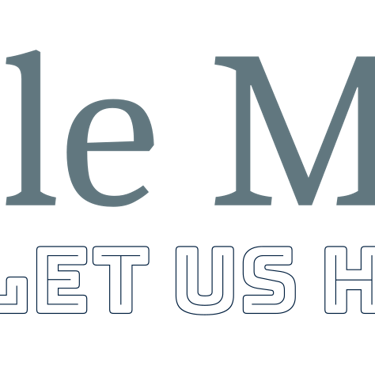Effective Tips and Strategies for Managing Relationship Anxiety
Discover effective tips and strategies for managing relationship anxiety. Strengthen your connection, improve communication, and build trust in your relationship with expert advice for couples facing anxiety challenges
10/18/20244 min read


Understanding Relationship Anxiety
Relationship anxiety is a psychological condition characterized by persistent fear and concern regarding the dynamics of one's romantic partnership. It typically stems from various sources, including past experiences, attachment styles, and personal insecurities. Individuals experiencing relationship anxiety may find themselves overly worried about their partner's feelings, the future of the relationship, or their own worthiness within the partnership. This anxiety can manifest in several ways, including excessive questioning, constant reassurance-seeking, or avoidance behaviors.
One prominent cause of relationship anxiety is a history of trauma or unhealthy relationships. Individuals who have been hurt in the past may carry unresolved issues that lead to heightened sensitivity to perceived threats in current relationships. Additionally, attachment styles, which are formed during early development, play a crucial role. For instance, those with an anxious attachment style may often feel insecure about their partner's love and commitment, resulting in cyclical patterns of anxiety and distress.
The symptoms of relationship anxiety can be varied and may include feelings of insecurity, fear of abandonment, and intrusive thoughts about the partner's loyalty. Communication becomes adversely affected as anxiety can lead to misunderstandings and misinterpretations of the partner's actions or words. Consequently, trust issues can arise, damaging the emotional connection that is essential for a healthy relationship. Recognizing these symptoms is crucial; both individuals and couples can gain insights into their interactions, ultimately fostering greater empathy and understanding.
Learning to identify the signs of relationship anxiety in oneself and one's partner is a critical step toward effectively managing it. Tools such as open communication and self-reflection can empower individuals to address their concerns and work collaboratively with their partners to build a more secure and trusting environment.
Strengthening Emotional Connection
Establishing and nurturing an emotional connection within a relationship is paramount for mitigating relationship anxiety. One of the practical strategies that couples can employ is dedicating regular quality time to each other. This can be achieved through scheduled date nights or engaging in shared hobbies. Prioritizing time for one another fosters an environment where partners can be present, reducing distractions and allowing for meaningful interactions.
Active listening is another vital technique to enhance emotional bonds. This practice involves genuinely focusing on what your partner is saying, reflecting back on their thoughts, and showing empathy towards their feelings. When partners engage in active listening, it demonstrates respect and understanding, reinforcing trust. Both partners should feel heard and valued, diminishing feelings of isolation often associated with relationship anxiety.
Furthermore, sharing feelings without judgment is crucial in deepening intimacy. Partners should create a safe space where they can express their thoughts and emotions freely. This openness encourages vulnerability, which is essential in building a strong emotional connection. Techniques such as "I" statements can help partners articulate their feelings while minimizing potential defensiveness. For example, saying "I feel anxious when…" rather than blaming or pointing fingers can foster healthier conversations.
Incorporating supportive activities such as emotional check-ins can also strengthen the bond between partners. Regularly asking each other about feelings and experiences fosters ongoing connection and provides insight into each partner's emotional landscape. By utilizing these strategies, individuals can cultivate intimacy and vulnerability within their relationship, ultimately reducing relationship anxiety.
Improving Communication Skills
Effective communication is essential for managing relationship anxiety. It serves as a foundation for expressing feelings, addressing concerns, and fostering understanding between partners. Open and honest dialogue can significantly alleviate feelings of anxiety, allowing both individuals to feel heard and valued. One of the most effective techniques for enhancing communication is to approach discussions with a clear intention. This involves preparing thoughts and choosing an appropriate time and environment for the conversation, which reduces misinterpretation and promotes clarity.
Non-verbal communication also plays a critical role in conveying emotions and intentions. Body language, facial expressions, and tone of voice can often express more than words. Being mindful of these elements can help each party understand the underlying feelings, thereby reducing misunderstandings that may lead to anxiety. For instance, maintaining eye contact and adopting an open posture can demonstrate receptiveness and engagement during discussions.
When navigating difficult conversations, it is beneficial to employ conflict resolution strategies. Using "I" statements rather than "you" statements helps in expressing personal feelings without sounding accusatory. For example, one might say, "I feel anxious when plans are changed at the last minute," instead of "You always change the plans." This approach fosters a constructive dialogue and diminishes defensiveness from the other party.
Another vital aspect of effective communication is the practice of validation and reassurance. Recognizing your partner’s feelings and expressing empathy can create a safe atmosphere for sharing. Saying phrases like, "I understand why you feel this way," or "Your feelings are valid," can strengthen the emotional bond and promote a sense of safety. Ultimately, cultivating strong communication skills is a proactive approach to mitigating relationship anxiety and enhancing the overall quality of the relationship.
Building Trust and Security
Building trust and security in a relationship is essential to managing anxiety that may arise from uncertainty or fear. Trust serves as the foundation for a healthy partnership, and it can be reinforced through consistent actions, open communication, and establishing clear boundaries. To begin establishing trust, both partners must demonstrate reliability in their words and actions. This means following through on promises and commitments, no matter how small they may seem. When each partner sees the other as dependable, it fosters a sense of security that minimizes anxiety.
Transparency is another crucial component in building trust. Open discussions about feelings, expectations, and concerns create an atmosphere where both partners feel valued and heard. Encourage regular check-ins where partners can express their thoughts without fear of judgment. This ongoing dialogue enhances mutual understanding and allows for the timely resolution of any misunderstandings that could otherwise contribute to anxiety.
Setting clear boundaries is equally important in reinforcing trust. Establishing what is acceptable and what is not helps both partners feel safe and respected. Open conversations about individual boundaries should be prioritized, as they clarify expectations and encourage respect. This mutual agreement not only diminishes anxiety but also enables couples to navigate challenges with a sense of security.
Finally, fostering an environment of mutual respect and support plays a vital role in building trust. Each partner should feel empowered to express their needs and aspirations while also valuing the other’s. Celebrating each other’s achievements and providing comfort in times of stress can help cultivate a deeper bond. Engaging in deliberate actions to enhance trust, such as expressing gratitude and offering reassurance, can significantly contribute towards a stable and secure relationship where anxiety is less impactful.



